In the ever-evolving landscape of international trade, door-to-door shipping has emerged as a crucial logistics solution for importers seeking efficiency and reliability in transporting goods. This service streamlines the shipping process by managing all aspects of logistics—from pick-up at the sender’s location to final delivery at the recipient’s doorstep. By utilizing the expertise of freight forwarders, businesses can navigate the complexities of customs clearance, transportation, and communication with ease. Understanding the nuances of door-to-door shipping, including its key components and the differences between DDU and DDP, is vital for making informed decisions that enhance operational efficiency and ensure a smooth shipping experience. Whether you’re an individual or a business, this comprehensive service offers a hassle-free approach to importing goods, making it an attractive option in today’s global marketplace.
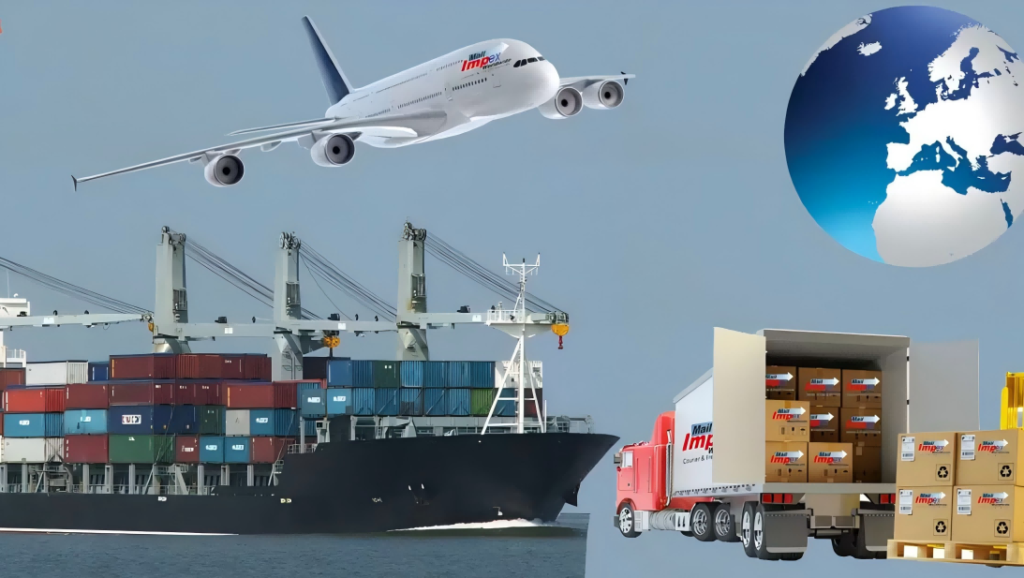
Introduction to Door-to-Door Shipping
Door-to-door shipping refers to a logistics service where a freight forwarder takes responsibility for transporting goods directly from the sender’s location to the recipient’s address. This comprehensive service eliminates the need for the sender and recipient to handle their own freight logistics, simplifying the shipping process significantly. The freight forwarder manages every step, including pick-up, transportation, customs clearance, and final delivery, ensuring a seamless experience for both parties.
Key Components of Door-to-Door Shipping
The key elements that constitute a successful door-to-door shipping service include:
-
Pick-up Services: The logistics provider collects goods from the sender’s specified location, whether it be a home or business.
-
Transportation: The goods are transported via the most efficient mode—be it air freight, ocean freight, or land transport—depending on the nature of the shipment and recipient location.
-
Customs Clearance: The logistics provider handles all customs documentation and processes, ensuring compliance with international regulations, which is a critical aspect particularly when shipping from China.
-
Final Delivery: The service includes delivery right to the recipient’s doorstep. The freight forwarder will coordinate with local delivery services to ensure timely arrival.
-
Tracking and Communication: Many providers offer real-time tracking capabilities that allow both senders and recipients to monitor the shipment’s progress.
DDU vs DDP in Door-to-Door Shipping
When engaging in door-to-door shipping, two common terms arise—DDU (Delivered Duty Unpaid) and DDP (Delivered Duty Paid). Understanding the differences between these two terms is crucial for importers:
-
DDU (Delivered Duty Unpaid): Under this arrangement, the seller is responsible for delivering the goods to the buyer’s location, but they do not cover import duties or taxes. The recipient bears the responsibility for paying these additional charges upon arrival.
-
DDP (Delivered Duty Paid): In this case, the seller takes on the responsibility of delivering the goods and pays all duties, taxes, and other charges associated with the import. This arrangement offers a more seamless experience for the buyer as all costs are covered upfront.
| Feature | DDU | DDP |
|---|---|---|
| Responsibility for Customs Duties | Buyer (Recipient) | Seller |
| Complexity | Higher (requires recipient to manage duties) | Lower (all costs included) |
| Cost Transparency | Varies, additional costs may arise | Clear upfront costs |
| Ideal for | Buyers familiar with customs | Buyers seeking hassle-free shipping |
Understanding these terms and their implications can significantly impact the logistics strategy for businesses and individuals engaged in international commerce.
You may be interested in the following related articles:
- Ultimate Guide to Door-to-Door Shipping from China to Algeria: Everything You Need to Know!
- The Ultimate Guide to Efficient Door-to-Door Shipping from China to Egypt
- Ultimate Guide to Door-to-Door Shipping from China to France – A Step-by-Step Process
- Comprehensive Guide to Door-to-Door Shipping to Italy in 2024
- Ultimate Guide to Door-to-Door Shipping to Germany: Everything You Need to Know
- Door-to-Door Freight Shipping from China to UK
Benefits of Door-to-Door Shipping from China to Norway
Hassle-Free Shipping Process
Engaging in door-to-door shipping from China to Norway removes the complexities typically associated with international shipping. Importers often face a myriad of logistical challenges, from determining the best transportation method to understanding customs regulations. By utilizing a professional service like Dantful International Logistics, you receive a streamlined process that handles all aspects of shipping, allowing you to focus on core business operations rather than logistics management.
Guaranteed Delivery to Your Doorstep
One of the standout features of door-to-door shipping is the guarantee of delivery right to the recipient’s address. This service ensures that there are no additional handoffs or logistical hurdles that could delay the arrival of valuable goods. Importers can rest assured that their products will arrive at the specified location in Norway, reducing the risk of loss or damage during transit.
Tracking and Insurance Options Available
In today’s shipping landscape, transparency and security are paramount. With door-to-door shipping, shipments often come with tracking capabilities that allow both senders and recipients to monitor their packages in real time. Furthermore, options for insurance services are typically available, providing peace of mind against potential losses or damages during transportation. This layer of security is particularly important when shipping valuable cargo or large quantities of goods.
Suitable for Both Individuals and Businesses
The versatility of door-to-door shipping makes it an attractive option for a wide range of customers. Whether you are an individual importing a personal item or a business looking to streamline your supply chain, this service is adaptable to various needs. For companies looking to import inventory or products for resale, utilizing a reliable freight forwarder like Dantful International Logistics ensures that your goods arrive safely and promptly, allowing you to maintain business continuity.
Incorporating door-to-door shipping into your logistics strategy for imports from China to Norway can significantly enhance your operational efficiency. For a highly professional, cost-effective, and quality-driven approach to international logistics, consider partnering with Dantful International Logistics, your one-stop solution for global trade.
Shipping Methods Shipping from China to Norway
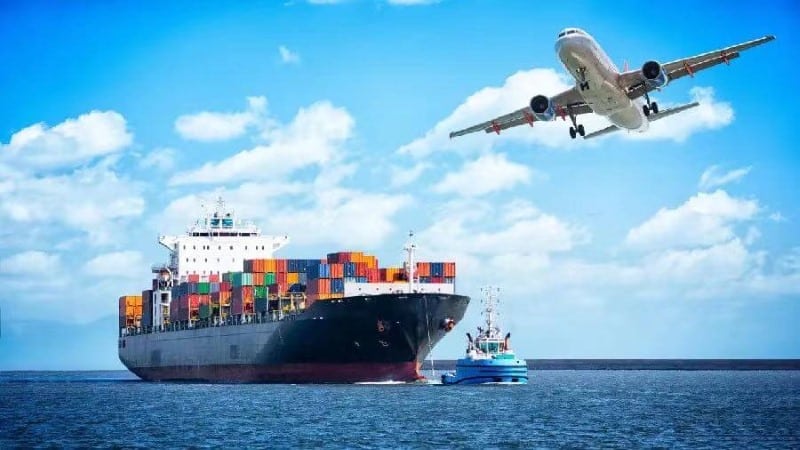
When considering door-to-door shipping, choosing the right shipping method is crucial for ensuring timely delivery and cost-effectiveness. The primary options available are air freight, sea freight, and express services, each catering to different needs based on urgency, volume, and budget.
Air Freight Door-to-Door Shipping
Air freight is often the preferred option for businesses seeking speed and reliability. This method is ideal for shipping high-value goods or items that require swift delivery. With air freight door-to-door shipping, the logistics provider takes care of everything from pick-up to final delivery:
- Advantages:
- Fast transit times (typically 1-3 days).
- Less risk of damage compared to other methods, due to fewer handling points.
- Real-time tracking capabilities.
- Considerations:
- Higher costs compared to sea freight.
- Weight and size limitations on cargo.
For businesses importing goods from China to Norway, air freight is particularly beneficial when time-sensitive deliveries are needed, such as electronics, fashion items, or seasonal merchandise.
Sea Freight Door-to-Door Shipping
Sea freight is a cost-effective option for transporting larger volumes of goods. This method is especially suitable for businesses dealing with bulk shipments or lower-value items. Within sea freight, two common options are Less than Container Load (LCL) and Full Container Load (FCL):
- LCL (Less than Container Load) Door-to-Door:
- Ideal for smaller shipments that do not fill an entire container.
- Cost-efficient as multiple shipments are consolidated into one container.
- Typically has longer transit times due to consolidation processes.
- FCL (Full Container Load) Door-to-Door:
- Suitable for businesses with larger shipments that require a dedicated container.
- Offers quicker transit times as the container is filled solely with the sender’s goods.
- Provides more security, minimizing the handling of cargo.
Advantages of Sea Freight:
- More economical for large shipments.
- Suitable for a wide range of products, including heavy machinery and bulk commodities.
- More environmentally friendly compared to air freight.
Express Door-to-Door Shipping
Express door-to-door shipping services provide the fastest shipping option within the logistics landscape. This method is typically utilized for urgent deliveries, and it often combines air freight with specialized courier services to ensure prompt delivery.
- Advantages:
- Very rapid delivery times (sometimes within 24 hours).
- Robust tracking systems that provide real-time updates.
- Tailored services for specific cargo needs, such as pharmaceuticals or documents.
Express shipping is particularly beneficial for businesses needing to send urgent documentation, small packages, or high-value items where time is of the essence.
Read More:
- Shipping From China To Netherlands
- Shipping From China To Spain
- Shipping From China To Germany
- Shipping From China To France
- Shipping From China to Italy
- Shipping From China To Poland
- Shipping From China to United Kingdom
Steps in the Door-to-Door Shipping Process
Understanding the steps involved in door-to-door shipping is essential for importers. This process ensures that goods are transported seamlessly from the supplier in China to the final destination in Norway.
Pickup from the Supplier in China
The initial step in the door-to-door shipping process involves the logistics provider picking up goods from the supplier’s location in China. This includes coordinating the collection schedule, ensuring all items are packed and ready for transportation, and confirming any necessary documentation is in order. The freight forwarder plays a pivotal role in managing this step effectively, ensuring that shipments are collected on time.
Export Customs Clearance in China
Before goods can leave China, they must go through export customs clearance. This process involves submitting required documentation, including invoices, packing lists, and export licenses if necessary. The freight forwarder assists in navigating Chinese customs regulations, ensuring compliance and preventing any delays that could arise from inaccurate or incomplete paperwork.
International Transportation (Air or Sea)
Once customs clearance is completed, the goods are transported to their destination, either via air freight or sea freight. The chosen method will depend on urgency, budget, and the nature of the shipment. Throughout this phase, the logistics provider manages the transportation logistics, ensuring the cargo is safely loaded and monitored during transit.
Import Customs Clearance in Norway
Upon arrival in Norway, the goods must undergo import customs clearance. Similar to the export process, this step requires proper documentation to facilitate the entry of goods into the country. The logistics provider will again assist in this process, ensuring compliance with Norwegian import regulations, including the payment of any applicable duties and taxes.
Last-Mile Delivery to the Final Destination
The final step in the door-to-door shipping process is the last-mile delivery. This involves transporting the goods from the port or airport to the recipient’s specified address in Norway. The logistics provider coordinates with local delivery services to ensure that the goods are delivered safely and efficiently, completing the door-to-door shipping experience.
By utilizing a comprehensive door-to-door shipping service from a trusted provider such as Dantful International Logistics, importers can simplify their logistics processes and ensure reliable delivery of goods from China to Norway.
Cost Factors in Door-to-Door Shipping
Understanding the cost structure associated with door-to-door shipping is crucial for businesses importing goods from China. This knowledge helps in budgeting effectively and identifying potential areas for savings.
Breakdown of Typical Costs Involved
The costs associated with door-to-door shipping generally include the following components:
| Cost Component | Description |
|---|---|
| Pick-up and Delivery Fees | Charges for collecting the goods from the supplier and delivering to the final destination. |
| Transportation Costs | Expenses for the actual shipping, which can vary greatly between air freight, sea freight, and express services. |
| Customs Duties and Taxes | Import duties and taxes imposed by the destination country. These vary based on the type of goods. |
| Insurance | Costs associated with insuring the shipment against loss or damage during transit. |
| Documentation Fees | Charges for preparing necessary shipping documents, including customs paperwork. |
| Storage Fees | Costs incurred if the shipment requires temporary storage during transit or customs clearance. |
Factors Affecting Pricing
Several elements can influence the overall costs of door-to-door shipping:
- Mode of Transportation: Air freight is generally more expensive than sea freight due to speed and logistical complexities.
- Volume and Weight of Shipment: Larger and heavier shipments typically incur higher transportation costs, particularly in freight rates.
- Distance: The geographical distance between the origin and destination impacts shipping costs. Longer distances usually increase freight charges.
- Seasonality: Demand fluctuations during peak seasons, such as holidays, can cause price increases.
- Customs Regulations: Changes in import/export regulations, tariffs, and duties can influence shipping costs unexpectedly.
- Service Level: Choosing express shipping services often leads to higher costs compared to standard shipping options.
Tips for Cost Optimization
To manage and potentially reduce costs associated with door-to-door shipping, consider the following strategies:
- Compare Quotes: Always obtain quotes from multiple freight forwarders to identify competitive pricing.
- Consolidate Shipments: If shipping smaller volumes, consider grouping shipments together (LCL) to save on transportation costs.
- Negotiate Rates: Leverage your shipping volume to negotiate better rates with freight forwarders.
- Utilize Freight Management Software: These tools can help optimize routes, manage shipping schedules, and monitor costs effectively.
- Plan Ahead: Default to planning shipments ahead of time to avoid rush fees associated with urgent deliveries.
Transit Times in Door-to-Door Shipping
The duration of shipments can significantly affect both inventory management and customer satisfaction. Understanding the estimated transit times for different shipping methods is essential for planning.
Estimated Durations for Different Shipping Methods
| Shipping Method | Estimated Transit Time | Best For |
|---|---|---|
| Air Freight | 1-3 days | Urgent deliveries of high-value items |
| Express Shipping | 1-2 days | Critical time-sensitive shipments |
| FCL Sea Freight | 20-40 days | Larger shipments, less time-sensitive |
| LCL Sea Freight | 30-45 days | Smaller shipments where cost is key |
Factors That Can Affect Delivery Times
Several variables can impact the estimated transit times, including:
- Weather Conditions: Severe weather can cause delays in transportation schedules.
- Port Congestion: High traffic at ports can result in longer wait times for loading and unloading.
- Customs Delays: Issues with documentation or inspections can prolong the customs clearance process.
- Transport Mode Switching: If a shipment requires a change in transportation modes (e.g., from air to truck), additional time may be needed for transfer.
- Seasonal Demand: Peak shipping seasons can lead to increased transit times due to high volume and congestion.
Choosing the Right Freight Forwarder
Selecting a reliable freight forwarder is a critical step in ensuring successful door-to-door shipping. The right partner can facilitate smooth logistics and ultimately contribute to business success.
Look for a Reliable and Experienced Company
When evaluating potential freight forwarders, it is essential to assess their experience and reliability. Established companies often have streamlined processes in place and a broader network of partners, which can enhance service efficiency.
Compare Shipping Rates and Transit Times
Reviewing and comparing the rates and transit times of different freight forwarders can reveal the best fit for your specific needs. A balance of cost-effectiveness and reasonable shipping durations is vital for maintaining competitive business operations.
Ensure the Forwarder Offers Door-to-Door Service
Not all logistics providers offer comprehensive door-to-door shipping services. It is crucial to confirm that the chosen freight forwarder can manage every aspect of the shipping process, from pick-up to final delivery.
Check for Additional Services Like Customs Clearance
Inquire whether the freight forwarder provides additional services, such as customs clearance and insurance services. These offerings can save time and reduce headaches, allowing you to focus on other essential business operations.
By carefully evaluating these factors, you can select a freight forwarder that aligns with your shipping needs and enhances your overall import strategy. Partnering with a reputable provider like Dantful International Logistics ensures a seamless shipping experience tailored to your business objectives.
Dantful International Logistics Services:
- Dantful Ocean Freight Services
- Air Freight From China
- Amazon FBA Freight Forwarding
- WAREHOUSE Services
- One-Stop Customs Clearance Solution
- Cargo Insurance Services in China
- DDP Shipping Services By Dantful Logistics
- Out of Gauge Cargo Transportation Shipping Services
FAQs
1. What is door-to-door shipping?
Door-to-door shipping is a logistics service where a freight forwarder takes responsibility for transporting goods directly from the sender’s location to the recipient’s address, managing all logistics steps, including pick-up, transportation, customs clearance, and final delivery.
2. What are the key components of door-to-door shipping?
Key components include:
- Pick-up Services: Collection of goods from the sender’s location.
- Transportation: Efficient transport via air freight, sea freight, or land transport.
- Customs Clearance: Handling customs documentation and compliance.
- Final Delivery: Delivering goods to the recipient’s doorstep.
- Tracking and Communication: Real-time monitoring of shipment progress.
3. What is the difference between DDU and DDP?
- DDU (Delivered Duty Unpaid): The seller delivers the goods but does not pay for import duties or taxes; the recipient is responsible for these fees.
- DDP (Delivered Duty Paid): The seller delivers the goods and pays all applicable duties and taxes, providing a hassle-free experience for the buyer.
4. What are the benefits of door-to-door shipping from China to Norway?
- Hassle-Free Process: Simplifies logistics, allowing importers to focus on core business activities.
- Guaranteed Delivery: Ensures delivery to the specified address, reducing risks of loss or damage.
- Tracking and Insurance Options: Provides real-time shipment tracking and options for insuring valuable goods.
- Versatile for Individuals and Businesses: Adaptable to a variety of shipping needs.
5. What shipping methods are available for door-to-door shipping?
The main shipping methods include:
- Air Freight: Fast transit times, ideal for high-value items.
- Sea Freight: Cost-effective for larger volumes, with options for Less than Container Load (LCL) and Full Container Load (FCL).
- Express Shipping: The fastest option for urgent deliveries.
6. What are the typical costs involved in door-to-door shipping?
Cost components typically include:
- Pick-up and Delivery Fees
- Transportation Costs
- Customs Duties and Taxes
- Insurance
- Documentation Fees
- Storage Fees
7. How long does door-to-door shipping take?
Transit times vary based on the shipping method:
- Air Freight: 1-3 days
- Express Shipping: 1-2 days
- FCL Sea Freight: 20-40 days
- LCL Sea Freight: 30-45 days
8. What factors can affect delivery times?
Factors include weather conditions, port congestion, customs delays, transport mode switching, and seasonal demand.

Young Chiu is a seasoned logistics expert with over 15 years of experience in international freight forwarding and supply chain management. As CEO of Dantful International Logistics, Young is dedicated to providing valuable insights and practical advice to businesses navigating the complexities of global shipping.










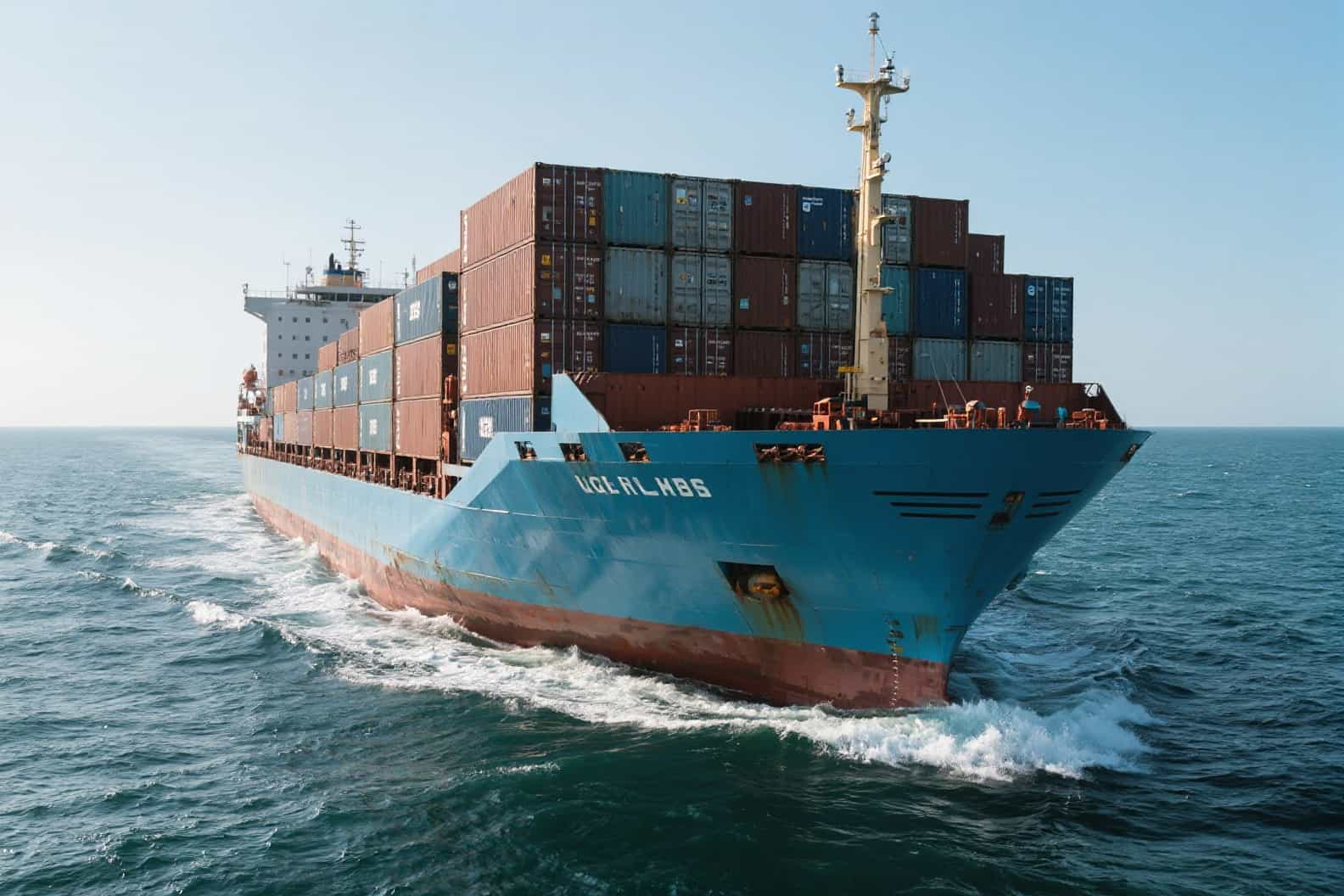
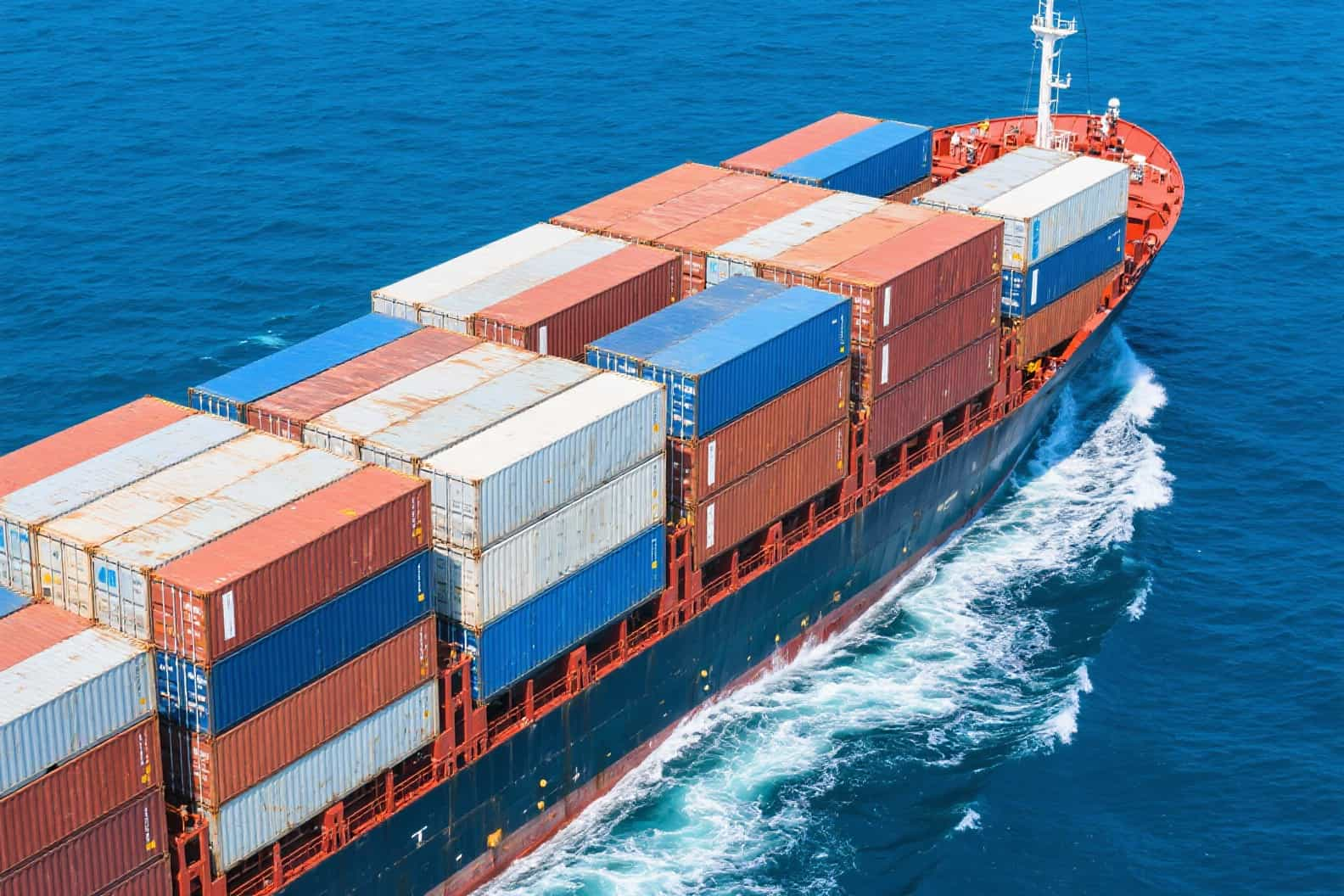
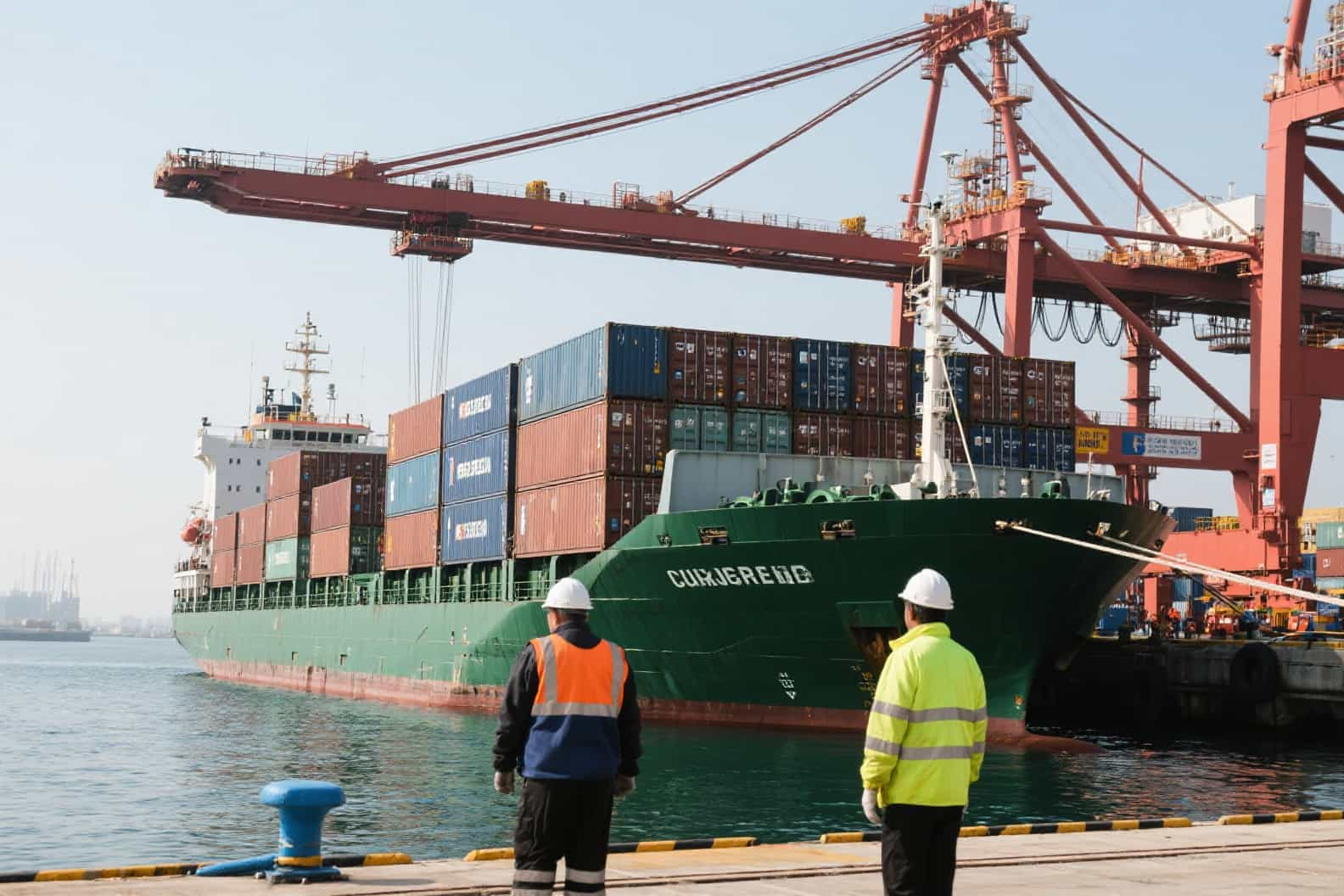
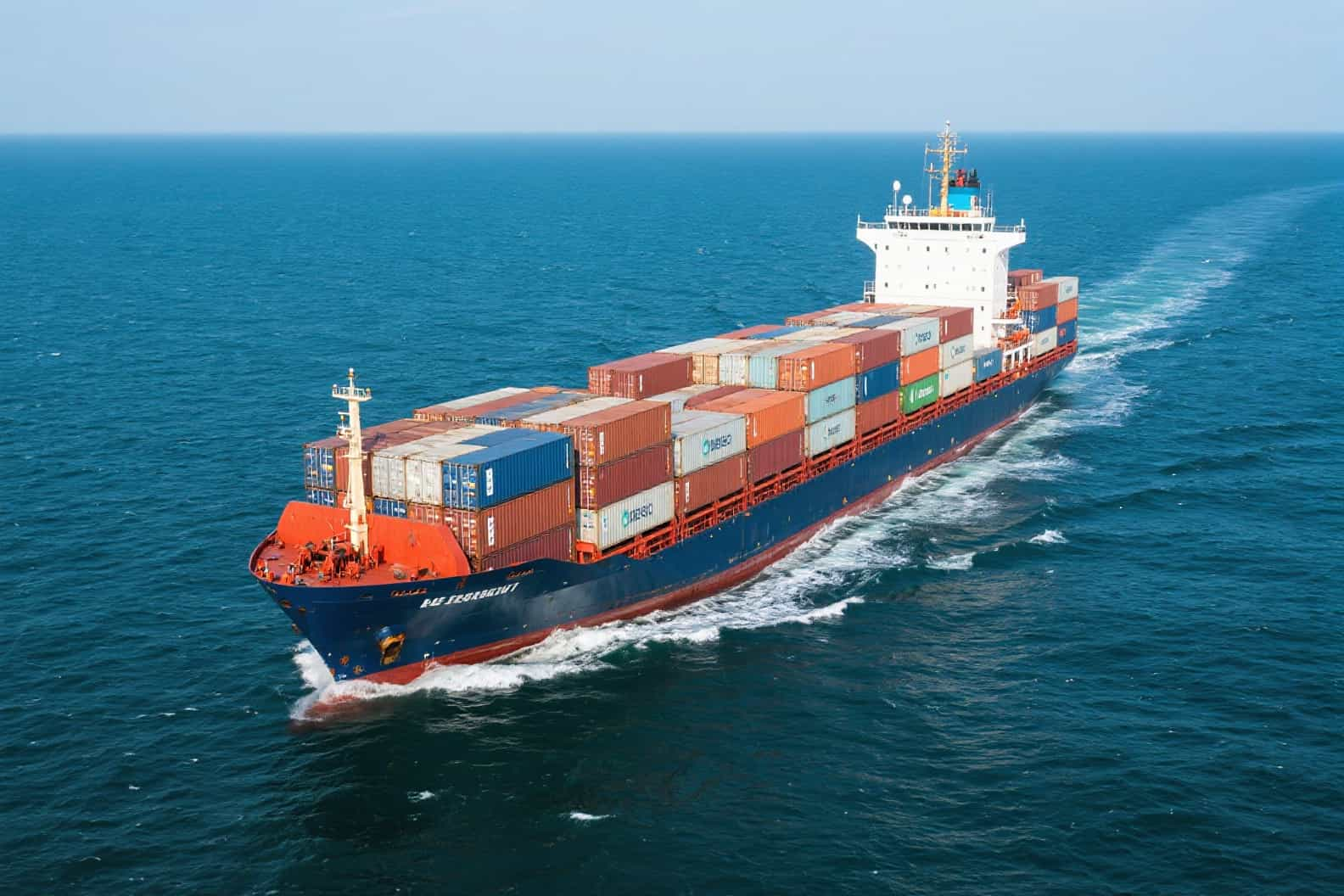
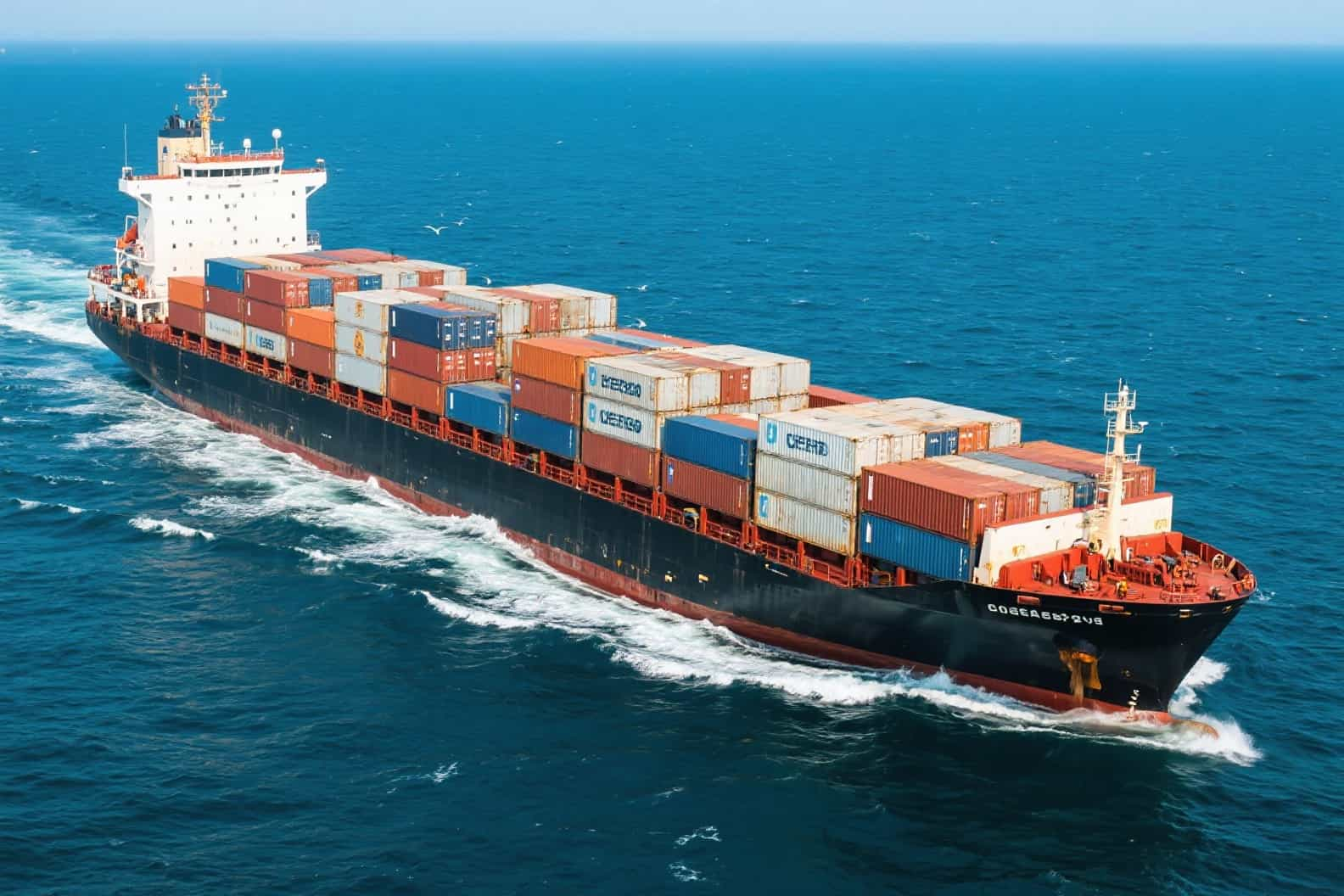





 Afrikaans
Afrikaans Shqip
Shqip አማርኛ
አማርኛ العربية
العربية Հայերեն
Հայերեն Azərbaycan dili
Azərbaycan dili Euskara
Euskara Беларуская мова
Беларуская мова বাংলা
বাংলা Bosanski
Bosanski Български
Български Català
Català Cebuano
Cebuano Chichewa
Chichewa 简体中文
简体中文 繁體中文
繁體中文 Corsu
Corsu Hrvatski
Hrvatski Čeština
Čeština Dansk
Dansk Nederlands
Nederlands English
English Esperanto
Esperanto Eesti
Eesti Filipino
Filipino Suomi
Suomi Français
Français Galego
Galego ქართული
ქართული Deutsch
Deutsch Ελληνικά
Ελληνικά Kreyol ayisyen
Kreyol ayisyen Harshen Hausa
Harshen Hausa Ōlelo Hawaiʻi
Ōlelo Hawaiʻi עִבְרִית
עִבְרִית हिन्दी
हिन्दी Hmong
Hmong Magyar
Magyar Íslenska
Íslenska Igbo
Igbo Bahasa Indonesia
Bahasa Indonesia Gaeilge
Gaeilge Italiano
Italiano 日本語
日本語 Basa Jawa
Basa Jawa ಕನ್ನಡ
ಕನ್ನಡ Қазақ тілі
Қазақ тілі ភាសាខ្មែរ
ភាសាខ្មែរ 한국어
한국어 كوردی
كوردی Кыргызча
Кыргызча ພາສາລາວ
ພາສາລາວ Latin
Latin Latviešu valoda
Latviešu valoda Lietuvių kalba
Lietuvių kalba Lëtzebuergesch
Lëtzebuergesch Македонски јазик
Македонски јазик Malagasy
Malagasy Bahasa Melayu
Bahasa Melayu മലയാളം
മലയാളം Maltese
Maltese Te Reo Māori
Te Reo Māori मराठी
मराठी Монгол
Монгол ဗမာစာ
ဗမာစာ नेपाली
नेपाली Norsk bokmål
Norsk bokmål پښتو
پښتو فارسی
فارسی Polski
Polski Português
Português ਪੰਜਾਬੀ
ਪੰਜਾਬੀ Română
Română Русский
Русский Samoan
Samoan Gàidhlig
Gàidhlig Српски језик
Српски језик Sesotho
Sesotho Shona
Shona سنڌي
سنڌي සිංහල
සිංහල Slovenčina
Slovenčina Slovenščina
Slovenščina Afsoomaali
Afsoomaali Español
Español Basa Sunda
Basa Sunda Kiswahili
Kiswahili Svenska
Svenska Тоҷикӣ
Тоҷикӣ தமிழ்
தமிழ் తెలుగు
తెలుగు ไทย
ไทย Türkçe
Türkçe Українська
Українська اردو
اردو O‘zbekcha
O‘zbekcha Tiếng Việt
Tiếng Việt Cymraeg
Cymraeg יידיש
יידיש Yorùbá
Yorùbá Zulu
Zulu